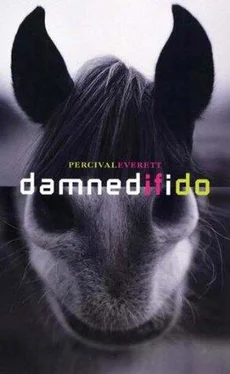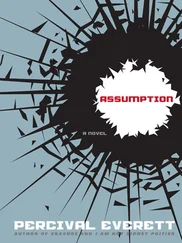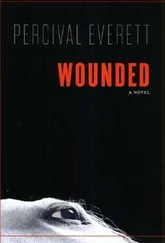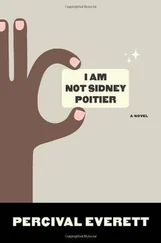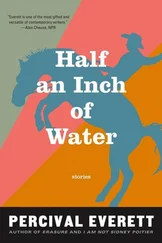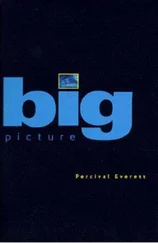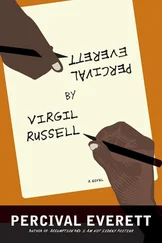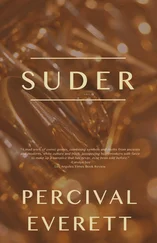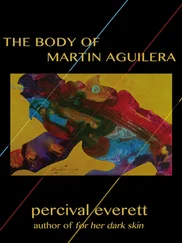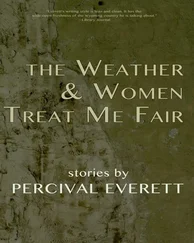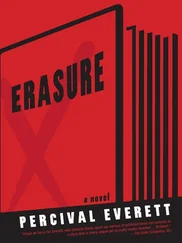We finished breakfast and loaded our gear into the Jeep Wagoneer, making sure to leave plenty of room for Errol and his father’s stuff. I petted the head of Lassie, our collie, and then we waved good-bye to my mother as we backed off the driveway and rolled away down our lane, past the gardens and picket fences and past the car-chasing terrier that lived on the corner and often slept in the middle of the street.
1 September
The drive north and up into the mountains was beautiful. Errol and I were sitting in the backseat while our fathers talked in the front. Errol’s father, whose name was Andy, called my father by his shortened nickname, Oz.
“So, what do you think, Oz?” the Kiowa man said. “Do you think this stuff down in Cuba is a real problem?”
My father shrugged. “I just wish the white people could blow each other up without taking the rest of us with them.”
The two men laughed, but Errol and I just looked at each other.
“But life is good for us out here, isn’t it, Andy?” my father asked.
“Yes, it is.”
We drove up away from the squatty junipers and past the firs into a series of meadows and stands of aspen. We decided to stop at the top of a hill that overlooked a clear, twisting creek that had a beaver dam. The two fathers agreed that the fishing would be good there and so we set up camp. It seemed we all sang as we collected wood for the fire, set up tents, and prepared the night’s dinner of hot dogs and baked beans from a can. I don’t remember what songs we sang, only that we sang.
1 September
We sat around the fire after our meal and Errol’s father told us how his people used to come down and raid the Taos Indians, how some of the warriors remained to take Taos wives, how they set up a camp in Bear Canyon and lived there in the summers and in the winters moved down to stay in the pueblo, even though they were Kiowa, even though the Kiowa made periodic raids on their village.
The moon was full that night and was bright corn-bread yellow. A few coyotes called out to it and Errol and I watched it, our heads sticking out of the tent we were sharing. Our fathers were still up and talking just yards away.
“I wish I was Indian like you,” I said to Errol.
“Why?”
“I don’t know, really,” I said. “I guess I like the way your father talks about this place. Like it’s a part of him.”
“My grandfather told me I’m a cat dreamer. And it’s true, I have these dreams where a cat moves right through me. I can feel it.”
I stared at his profile, his eyes still pointed at the sky. I wondered whether I believed him. I wanted to believe him and was jealous at the thought that it was true. “What kind of cat?” I asked.
“A big one, a lion.”
I closed my eyes and looked for my own cat.
1 September
Fog hung in patches over the pond and meadow. Errol fished the slow-moving creek below the beaver dam and I worked the expanse of flat, still water above it. It was early, the air still frigid. There was no fish-feeding activity on the surface, so I was casting terrestrials, cinnamon ants, hoppers, and elk-hair caddis flies up current to an undercut bank. I was casting into the weeds and dragging the flies into the water with a splash, the way my father had taught me. “Ground insects always splash into the water,” my father told me. “You don’t have to cast far. It’s all presentation. Everything is presentation.”
A big brown took my hopper and then darted for cover around a stump in the pond. I sloshed through the knee-deep water to keep my line clear. It was a big fish, at least twenty inches. My heart was pounding. My breath was short. I could feel Errol watching me. I began to strip in line.
“Not too fast,” Errol called to me.
I heeded his warning and calmed myself. I pulled the trout closer and closer and then I could see his eye staring at me on the surface. I was standing at the bank now. I grabbed the fish, slipped out the hook, and dropped it into my creel. I looked down to see Errol and he was waving to me, gave me the okay sign.
1 September
We ate the fish that Errol and I caught for breakfast along with scrambled eggs made by Errol’s father. The fish were fried with the heads still on and the meat fell away from the skeletons easily. The heat of the cooking fire warmed the front of my body and a cool wind bit pleasantly into my back.
After breakfast, we went hiking up the mountain. We followed the creek for a couple of miles and then veered away from it, climbing to the top of a ridge. We followed the ridge up into stands of aspen trees. We got a quick glimpse of a yearling elk, and then we found the partially devoured carcass of a fawn. The glassy eyes didn’t look real. The body was ripped open and the hind legs were gone. Part of the heart was several feet away.
“Lion,” Errol’s father said. “Look at the claw marks and the size of the bite.” He pointed to the torn, light brown body, but I really couldn’t see what he was talking about. “Body’s still warm,” he said.
Errol and I looked about anxiously. I was both excited and terrified. I wanted to see the animal, see it close up, out there in the woods.
“You boys stay close,” my father said.
We continued on through the forest. It was a cloudy day and so the sun never really had a chance to warm things up. I zipped up my jacket and listened for noises as we walked, trying to separate the forest from the sounds of our footfalls. We made it to the high lake and ate a late lunch of cheese sandwiches. Then we started back down. We didn’t see the cat, no further sign of it. I was disappointed. But the image of that fawn’s heart stayed with me.
1 September
There was a lion up there. I didn’t get to see it, but I was next to its kill. I saw the animal’s heart from which it had taken a bite. In my mind, the cat was gigantic, but in my calmer moments I realized that it was no bigger than a German shepherd dog. I couldn’t get to sleep that first night home after the camping trip. I wanted to dream about the lion and nothing else.
While I was awake, I thought about the fact that school would be starting again very soon. A matter of days. Those last days of summer were always the sweetest. The weather was hot, but not unbearable. There were occasional afternoon showers. And after the rain, when the desert had sucked up the moisture in less time than it had taken to fall, I would walk with Frannie Dawes.
Frannie Dawes lived across the street with her mother. Her father was in and out of the VA hospital in Albuquerque. Frannie was skinny, with little feet, and she played the flute. She liked insects and so I liked her.
Those last days of summer were sweet. And the circus was coming.
1 September
Frannie Dawes and I left my house with a sack lunch and my father’s binoculars. We didn’t see any coyotes, but we walked a long time. We walked along the wash and watched a couple of red-tailed hawks circling and looking for prey. We stayed out until the sun was going down, just talking about this and that. I was floating, feeling happy and lost. And I wanted more than anything to kiss Frannie Dawes, to kiss her on the lips.
We were facing the sunset as we approached the edge of town. There was a broken band of clouds, which the sun had turned golden. Frannie said for me to stop walking and just look at that. “Just look at that,” she said. I did and my hand found hers. I had never been so scared in my life. I looked over at her face. She was staring at the horizon at first, but then she looked at me. I don’t know how it happened, but somehow I kissed Frannie Dawes. It was a quick kiss, our lips barely touching, but it felt like a gift. Then we walked on, my heart racing around my chest.
Читать дальше
